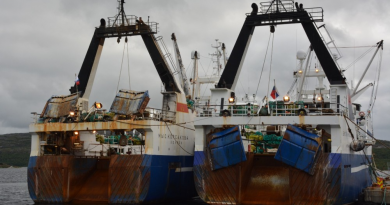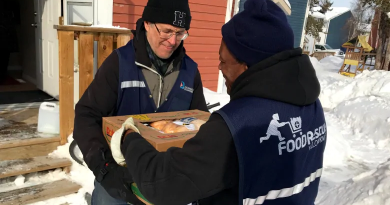All-Inuit law firm in Iqaluit seeks to break down barriers to justice system
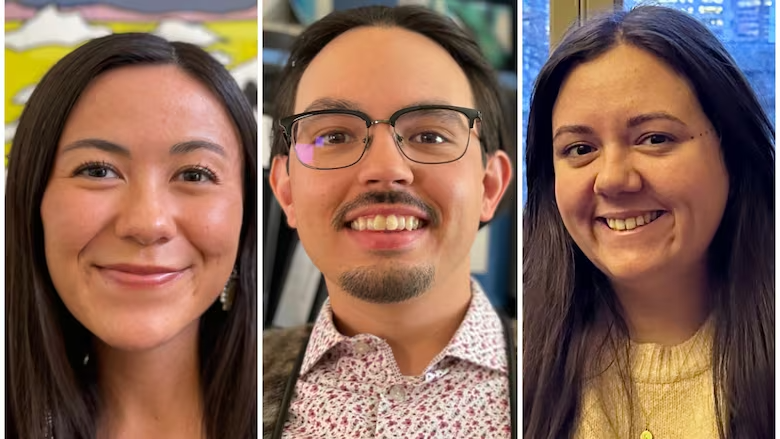
Tulugaq Law describes itself as Nunavut’s only active Inuit-owned law firm
Curtis Mesher knew he wanted to be a lawyer ever since he was a child. His family was involved in numerous Inuit organizations and created a charity for Inuit in Montreal — so you could say the desire to help fellow Inuit is in his blood.
“I was always a really admittedly nerdy kid hanging out at the Makivvik offices … There was a library in the office, and it was the law library for their legal department. And I was like, I like books. They like books. This sounds like a job for me,” he said.
Now, he has the power to be there for Inuit in the justice system as the founder of Tulugaq Law. It’s described as Nunavut’s only active Inuit-owned law firm, and right now, it has an all-Inuit team.
Mesher said in the seven months it’s been in operation, Tulugaq Law has helped numerous clients — with the majority being Inuit — with a variety of legal issues, including criminal law, wills, estates, corporate law and family files.
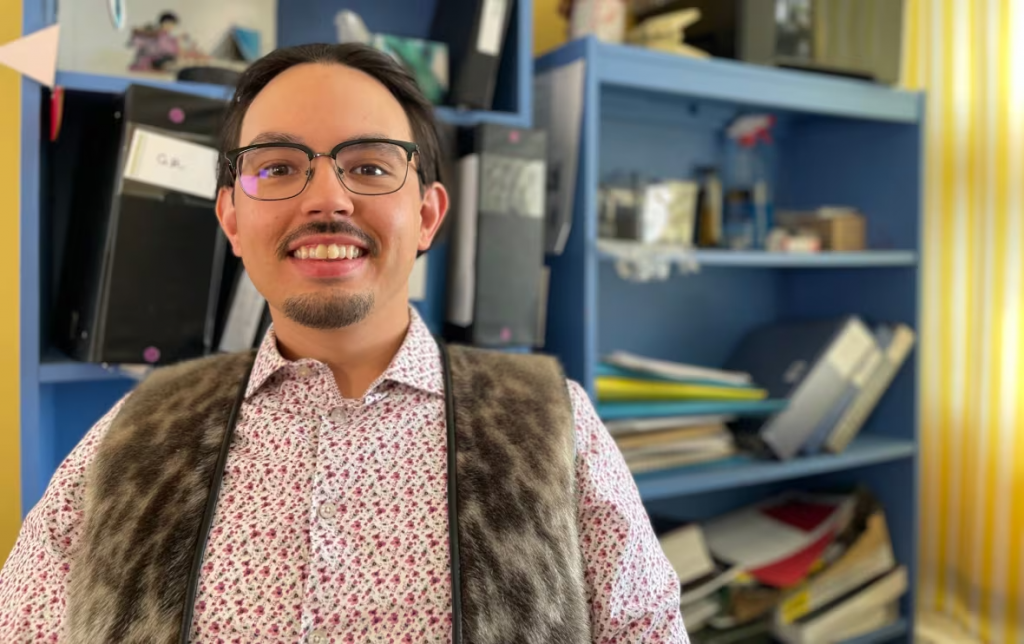
He has brought on two law students to help out: Katelynne Adams and Hope Carpenter.
Carpenter said Iqaluit is her home and she wants to be part of making it a better place.
“I’m not a singer. I’m not a dancer. I can’t contribute to the local art scene that way. But I can read and write a solid research paper. So I thought, why not help out and go into law,” she said.
Adams is getting into law now after years working with international organizations like the United Nations. It’s her way of trying to make the Canadian legal system to be more culturally relevant to Inuit.
“The Canadian legal system is not kind to Indigenous people as a whole,” she said.
A warm face in a cold place
Adams worries that many people don’t even attempt to seek legal help because of fear and distrust in the justice system — and that’s what makes her work so important to her.
“Sometimes the justice system scares me too, and it does feel like it can be a cold place … but within the system, there are really warm people,” she said.
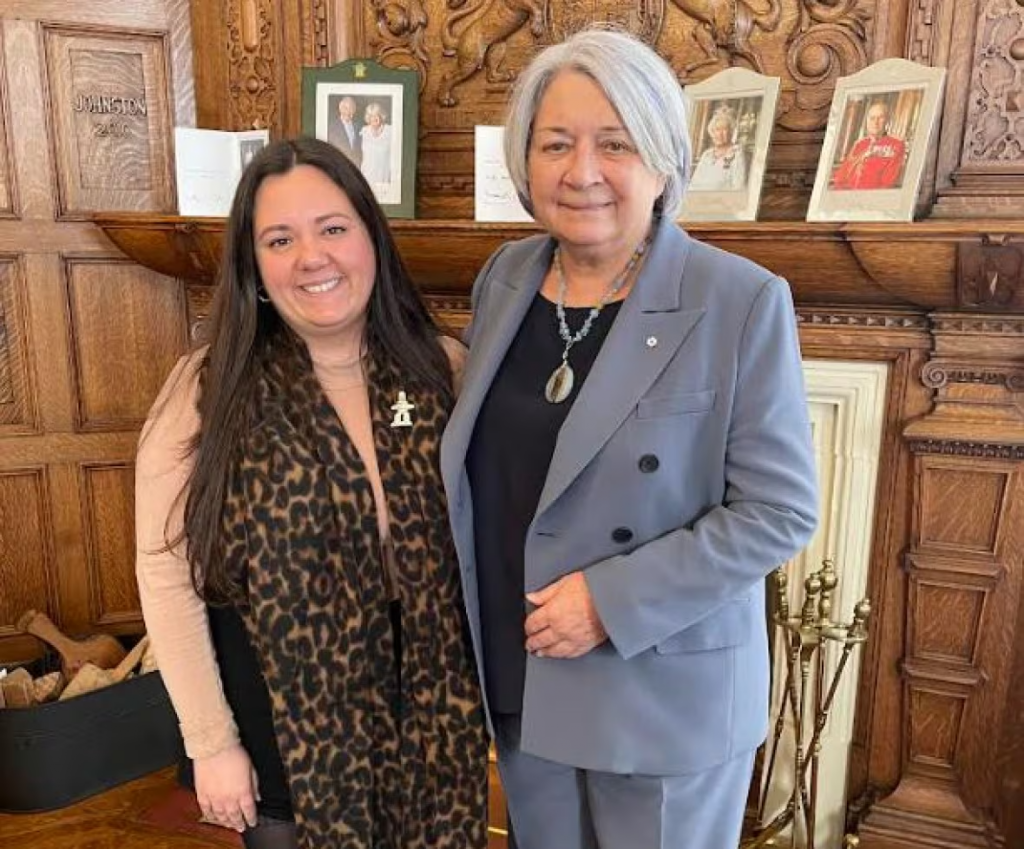
Carpenter said she believes the first step toward breaking down that cold front is for those in the justice system to acknowledge the harms their work can do.
“Maybe by starting off by acknowledging that and having a deep, honest discussion, we can all look inwards and think, how can we better serve the person right next to me? Maybe that’s taking Inuktitut classes or increasing cultural competency,” she said.
“The legal system here in Nunavut is so dependent on southern lawyers and so dependent on colonial law. And you think, how can that be justice … these concepts of right and reasonability really depend on the context in which you’re operating,” she said.
Going south to practise in the North
Part of the problem with that dependency, Carpenter believes, is the lack of a permanent law school in Inuit Nunangat.
“I think I had to make more sacrifices than maybe any of my friends at law school had to make to go,” she said.
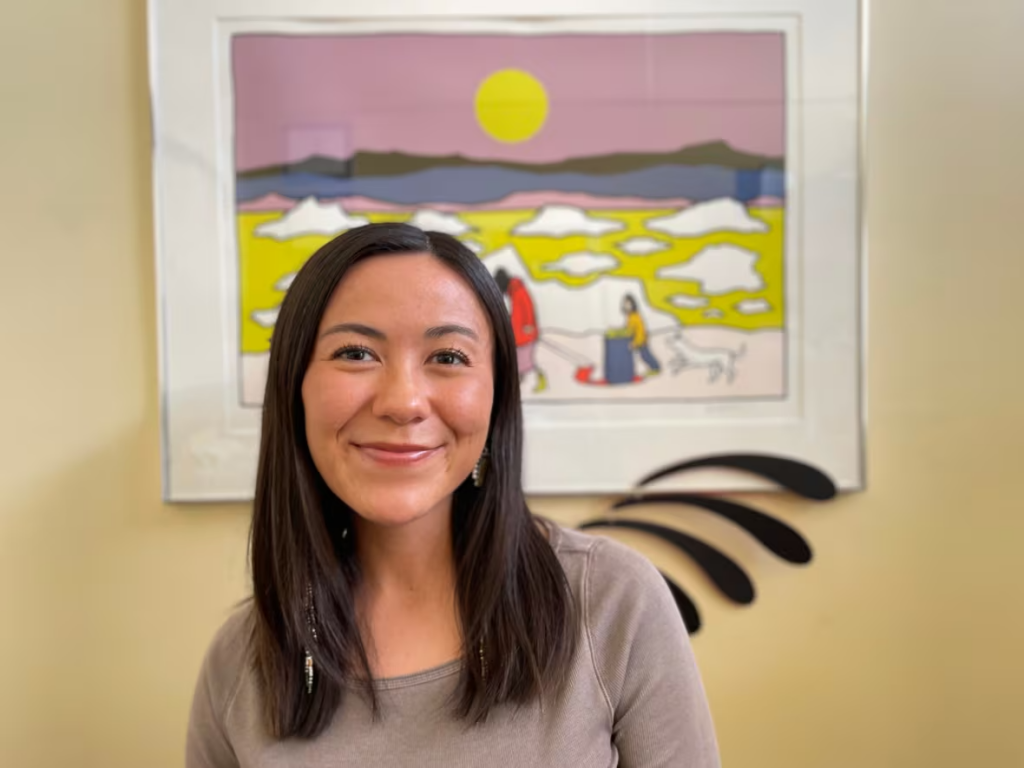
Carpenter and Adams both say they’re the only Inuit in their classes at the University of British Columbia and McGill University.
In 2017, the Nunavut Arctic College partnered with the University of Saskatchewan to deliver a four year law program in Iqaluit — but that no longer exists.
“It has to be more than just a one-off thing, there needs to be sustainability in that. And I think to see more Inuit lawyers, there has to be more of a revitalization work around our own legal traditions and own legal knowledge that could really either transform the Canadian legal system or support us in exercising a new kind of jurisdiction,” Adams said.
Honouring the calls for justice
The national inquiry into Missing and Murdered Indigenous Women and Girls (MMIWG) made 231 calls for justice to end violence against Indigenous people.
Two hundred and fifteen of those calls are under the jurisdiction of the federal government. According to its own measure, there are still 105 calls to be acted on.
I’m not a singer. I’m not a dancer. I can’t contribute to the local art scene that way. But I can read and write a solid research paper. So I thought, why not help out and go into law.– Hope Carpenter, law student
Adams believes it’s also incumbent on those working in the justice system to ensure those calls are put into motion.
“There are so many families and survivors and loved ones that worked really hard and shared really hard stories,” she said.
When it comes to criminal cases, Mesher said it’s always a fine balance between acknowledging the traumas the accused often carry, and ensuring victims feel seen and heard.
“I’ve yet to meet a client from here or an Inuk client anywhere that, in my eyes, didn’t have a reason for turning out the way they did,” he said.
“As a defence attorney, it becomes more a question of putting context to the judge [to show] things are more than what just exists on paper in the arrest record.”
Accessibility to the justice system is also an issue in Mesher’s eyes. Some communities, he said, go up to a year without court coming to town.
That’s why he hopes to open up shop in every part of Inuit Nunangat over the next decade.
Related stories from around the North:
Canada: Residents anxious about drug-related crime in N.W.T.’s South Slave region, Eye on the Arctic
Finland: Police response times up to an hour slower in Arctic Finland, Yle News
United States: Lack of village police leads to hiring cops with criminal records in Alaska: Anchorage Daily News, Alaska Public Media

